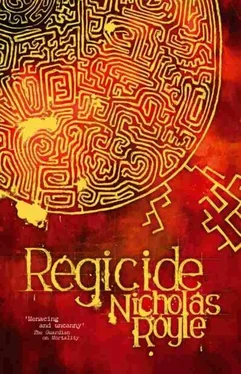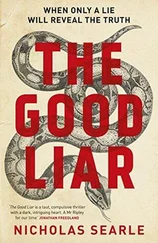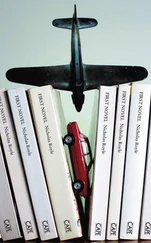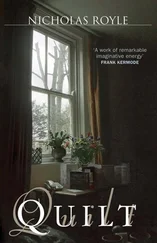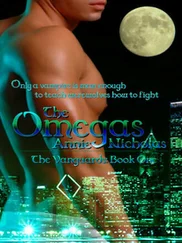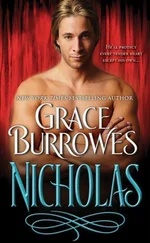The next time Stamford Jackson saw me I was coming home from school. It was a cold day and he was wearing a big grey duffel coat. I was just wearing my blazer because I didn’t have a big coat and I didn’t like wearing my anorak to school. For some reason I laughed at Stamford Jackson’s duffel coat. I may have made some remark as well because he was on me in seconds, punching my ears and frog-marching me down the street away from my house. I saw where he was leading me: at the end of the street near the railway was a patch of wet cement. I struggled to get free but there was no question of me having any control. He took me right to the edge of the cement and, grabbing my blazer collar, sent me sprawling in it.
He laughed as I flailed about trying to stand up, but eventually walked away back the way he’d brought me.
I couldn’t say I’d accidentally fallen in wet cement so I told my father when I got in that Stamford Jackson had done it. Calmly he got his hat from the hook by the door and left the house. I ran through to the front room so I could watch him walk up the street, his trilby making his head appear to tilt to one side as it always did. He walked in a relaxed way, not too fast, but he seemed to know exactly where he was going and what he was going to do.
I never found out what he did do. All I know is that Stamford Jackson never bothered me again. Occasionally I’d see him at the end of a street or down an entry but he’d always be the first to look away. My school uniform had to be replaced but I was never blamed or made to contribute to the cost.
When I woke up, the Professor and Wolf were in the room with me, both fast asleep, and there was no sign of Giff. Whatever strange place it was I’d fetched up in, I thought I should take full advantage of their lapse in vigilance. Carrying my jacket and boots in one hand I tiptoed to the door. There was an awkward moment when the door seemed to be locked, but it was just stiff. I worked it loose very slowly and carefully and only pulled it to behind me. I didn’t put my boots on until I had reached the ground floor.
My watch had stopped but I could see light streaming in through the cracks in the door to the street. There had been no windows in the room I’d slept in and I wasn’t sure what to expect from outside. I think I imagined the streets awash with light but as empty as the night before so when I pulled open the door and stepped out I got a shock.
It was like penetrating a stream of energy. Like Oxford Street at lunch time. For a couple of minutes I allowed myself to be carried along with the flow and before I knew it I was half a mile from Giff’s safe house. Even if I went back I wouldn’t know which was the right door. I had burned my boats but that was fine because Giff and his colleagues were mad and I had to get back to my car. Annie might have been trying to ring me at the flat. She could be worrying about me. I wanted to let her know I was all right.
I drew back from the procession of folk and rested my back against an official-looking building. A steady stream of people entered the building by a set of double doors on the corner and as many left at an exit ten yards further along. Those leaving carried a small, regular parcel wrapped in brown paper. I wondered what it might contain. On the side was stencilled a capital letter M.
They generally looked slightly different to the people I was used to having around me in London or Manchester. Their features were recognisably European, possibly British, but there was something different about their look: clothes, hair, shoes, bags. The ensemble was all wrong. They looked a bit like the confused people we saw emerging from behind the Berlin Wall or scrambling aboard ferries to Brindisi when the communist governments toppled, as if they’d had a stab at copying western fashions but had followed a bunch of style magazines that were at least ten years out of date. In fact, they looked like they lived in another country — one that had little or no contact with where I was trying to get back to.
I noticed a few suspicious glances coming my way and realised I was standing out — in my white leather jacket, tight jeans and butterfly boots.
I looked around for the nearest side street. Fifty yards away. Head down I covered some ground and slipped out of sight. The crowd continued to press past at the top of the street. On a corner opposite was one of the inset stone bench seats I’d seen the night before. Sitting on it was a man in early middle-age wearing a tight-fitting shiny black suit. He was watching intently the people who passed by under his perch. As I watched, two policemen approached him leading a third man through the stream of passers-by. There was a brief exchange. I noticed with horror that whenever the suspect tried to speak up he was beaten on the legs by one of the two policemen with a stick like the fat end of a billiard cue. The man on the chair eventually made a gesture with his right arm, laying it across his own chest then pointing at the head of the suspect who had started to struggle. A mask of fear had settled on his face. Passers-by looked down at the pavement and hurried on. The policemen led the man away, one either side, and they turned into another street where I saw a black van waiting. The back doors were opened from the inside and the man was bundled in. His face pressed up against the glass as the van drove away.
The two policemen re-emerged from the street and melted back into the throng. I turned and walked in the opposite direction down my side street, away from the crowds. Turning right I saw people again at the end of the street and headed for them. At least I would be well ahead of the two policemen. Before the intersection I stopped and took out my map. I was well acquainted with its boulevards and grids of streets but had seen nothing so far that enabled me to orientate myself. Even if I were to, though, I knew the map would only represent a fraction of the city — or of the City, as I now came to think of it. I slipped into the crowd, slouching in an effort to blend in.
I looked around and accidentally caught the eye of a judge at the next corner. Behind his head was a street name — Great North Road — which I remembered from the map so I dropped my eyes and shuffled past as part of the general tide of wretched humanity. I felt the judge’s eyes burning holes in the back of my head but when I had put enough distance between us that I felt half safe again I ducked into a doorway and took the map from my back pocket. I found Great North Road at the left of my map and worked out which way I was going. Then I reasoned that as I had been travelling south on the motorway and had found the City by wandering down a service road on the left-hand side of the road I had to go west in order to get back to the car. The Great North Road forked off the map near the top left-hand corner and there was no sign of any motorway or major road to the left of it.
I didn’t dare ask anybody if they knew where the motorway was. Giff had been quite clear: there was no motorway. There was, of course, there must have been, but these people didn’t know about it. I stepped back into the main street and set off in the other direction, heading north-west. For the first time I looked properly at the shops lining the route. They were drab and anonymous, named only after what they sold: SHOES, FASHION, IRONMONGERY, BOOKS. Displays were rudimentary and unenticing: windows full of dead flies and wasps, the odd badly dressed dummy, mismatched pairs of cheaply made shoes.
I turned my attention to the road. There were two steady streams of cars and trucks and I wondered if I would perhaps be better off in a car. I looked around but couldn’t see any cabs. What would I have said to the driver? Just drive up here for a bit so I can see if it leads to the motorway. He would have said what motorway and I would have been heading straight back into trouble.
Читать дальше
